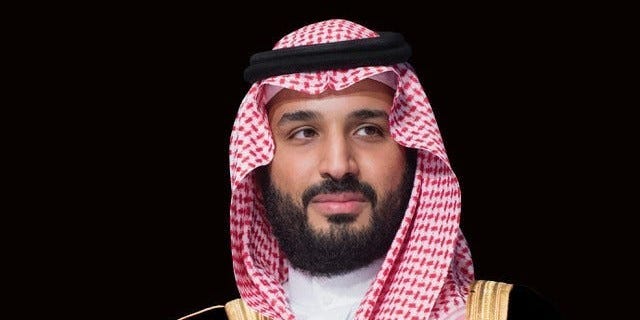- Saudi Arabia has invested billions of dollars into tech overseas in recent years.
- The kingdom is now looking for overseas tech companies to invest in it, according to Bloomberg.
- The kingdom plans to develop AI data centers, startups, and more with the help of foreign companies.
In his ascendance to power, Mohammed bin Salman spent years investing Saudi Arabia’s oil money in the global tech sector. The crown prince’s kingdom appears to be ready for some of that favor to be returned.
Rather than prioritizing investments in overseas tech companies, Saudi Arabia is looking to them to bring investment and resources to the Middle East as it seeks to capitalize on the AI boom and become a force of its own in the rapidly growing sector.
The latest signs of this shift came on Wednesday after Bloomberg reported that Saudi Arabia had plans for an up to $100 billion AI project that aims to not only prioritize the local tech industry but also encourage large tech companies to “put resources in the country.”
“Project Transcendence,” as it is known, aims to make Saudi Arabia a place with all the components needed to advance AI: data centers housing the GPUs that train and run AI models, well-resourced startups at the cutting edge of innovation, and a globally sourced talent pool. According to the Bloomberg report, it also aims to build a “national champion” in AI.
The crown prince, known as MBS, initiated a national AI strategy in 2020, well before the current boom. But several factors have emerged since then for his nation to think hard about what it can do to accelerate the development of a resilient AI industry at home — and who it can get some help from.
One reason is that there has been an investment step-up in AI since the launch of ChatGPT in late 2022, raising the stakes for Saudi Arabia as it battles neighboring rivals like the UAE for regional supremacy.
Emirati state Abu Dhabi, for instance, is home to G42, a domestic company with an advanced Arabic large language model. It has also attracted $1.5 billion of investment from Microsoft. Bloomberg’s report said Saudi Arabia planned to build its own version of G42.
Another reason is weakening oil demand, a resource that has made the kingdom the central economic force of the Middle East for the better part of a century.
An IMF report in September highlighted the ongoing decline in the country’s oil revenue as the calendar speeds through to 2030; a decade-high of 857 billion riyals in 2022 ($228 billion) is projected to fall to 778 billion riyals ($207.1 billion) by 2029. Signs of weakening demand showed themselves this week, too, as state-owned oil giant Saudi Aramco reported a 15.3% year-on-year decrease in third-quarter net income from $32.6 billion to $27.6 billion.
Diversification away from oil has been a front-and-center issue for the kingdom’s leaders for some time. It is a central focus of the grand Vision 2030 project MBS launched in 2016, which includes mega-infrastructure projects like Neom. It is also a top priority for decision-makers at the Public Investment Fund, Saudi Arabia’s giant sovereign wealth fund.
The fund — chaired by MBS — has served as a crucial diversification tool for Saudi Arabia, leading an investment charge into top tech names like Uber and SoftBank’s first Vision Fund, a venture capital vehicle that bet on over 90 companies with $45 billion from the Saudis. The kingdom doesn’t seem to want to keep up the pace of overseas spending it has previously had, however.
Last month, PIF governor Yasir Al-Rumayyan told attendees of the Future Investment Initiative in Riyadh that the fund was preparing to allocate just 18 to 20% of its capital to overseas opportunities, the Financial Times reported. That’s a notable drop from the 30% allocated at the start of the decade.
Overseas investment in AI looks set to continue, though. In March, The New York Times reported that the PIF was in early talks with Silicon Valley venture capital firm Andreessen Horowitz for a $40 billion AI fund. Should that materialize, it would be a significant force in the global AI investment space.
It remains to be seen how Project Transcendence might play out, but it could lead to Saudi Arabia announcing new developments, companies, and projects alongside key names from beyond its borders to bolster its AI activity at home.
There are already examples of the country turning to overseas tech companies. California-based AI company Groq, for instance, unveiled a partnership with an arm of Saudi Aramco in September that will oversee the development of an AI data center in the country.
In October, Google Cloud and the PIF announced a partnership to develop an AI hub in the kingdom that, if approved, would see the two conduct joint research on Arabic language models and train “millions” of students and professionals.
Saudi Arabia will want others to work with it, too, as it gets serious about becoming the Middle East’s main stage for AI.
Read the full article here


